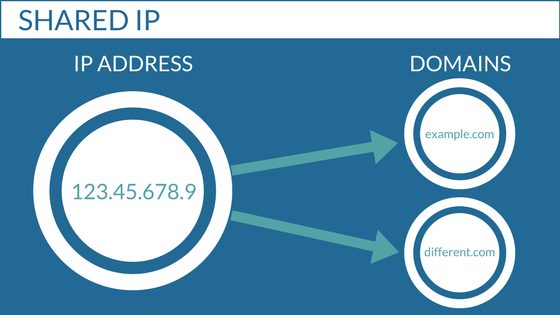
Table of Contents
Shared IP address is a single IP address that is used by multiple websites hosted on the same server. In a shared hosting environment, many websites share the same IP address to save costs and resources. This is common in budget-friendly hosting plans where resources are distributed among several users.
Key Features of a Shared IP Address
- Cost-Effective:
- Shared IP hosting is generally more affordable because the cost of the IP address and server resources is distributed among multiple users.
- Resource Sharing:
- Multiple websites share the same server resources, including CPU, memory, and storage. This can lead to efficient use of resources but may affect performance if one site consumes too much.
- Simplified Management:
- Hosting providers manage the server, including security updates, maintenance, and performance monitoring, making it easier for users to focus on their websites.
Use Cases for Shared IP Addresses
- Small Websites and Blogs:
- Ideal for personal blogs, small business websites, and other sites with moderate traffic and resource needs.
- Startup and Test Sites:
- Suitable for startups or developers who are testing new sites or applications without needing dedicated resources.
- Non-Critical Applications:
- Good for non-mission-critical applications where uptime and performance are not as crucial.
Benefits of a Shared IP
Lower price, simple setup and privacy are some of the advantages to expect when electing for this type of structure.
- Available at a cost-effective price point
A shared IP is more affordable compared to a dedicated IP. It’s inexpensive, particularly when bundled with hosting since the user will share server costs with other users. New businesses and organizations with limited budgets often find this arrangement favorable.
- Easy to setup
Having a shared IP can also mean shared hosting. With a shared hosting environment, users have access to pre-loaded software to use on their website or business. These can be installed at a click of a button.
- IP health and reputation is shared with other websites
By sharing addresses, the IP health is monitored not by a single user but by other domain users as well. This means new businesses can benefit from the good reputation of more established domains using the same IP address.
Potential Drawbacks of a Shared IP Address
- Performance Issues:
- Performance can be affected if other websites on the same server consume excessive resources.
- Security Concerns:
- Sharing an IP address with multiple websites can pose security risks. If one site is compromised, others might be affected.
- SEO Implications:
- Although rare, issues like IP blacklisting can impact SEO if another site on the same IP engages in malicious activities.
- Limited Control:
- Users have limited control over server configurations and resources compared to VPS or dedicated hosting.
Risks of a Shared IP
- Server resources are shared with other domains
If one or more websites is experiencing heavy traffic or growing at an exponential volume, it can negatively impact all other domain performances within the shared hosting pool.
- An attack on one domain can expose the others as well
If one website is hacked, this could result in increased vulnerability for the other sites since they all belong in the same directory.
- The negative reputation of one domain can affect the reputation of others
Unsavory practices, like email spamming, by one domain can affect the reputation of the other domains. If one domain engages in this prohibited activity and causes the IP to be blocked, it can have serious consequences for those with the same IP address.
Comparison with Dedicated IP Address
Dedicated IP Address:
- An IP address assigned exclusively to a single website or hosting account.
- Provides better performance, security, and control.
- Necessary for certain SSL certificates and email reputation management.
- More expensive than shared IP hosting.
Shared IP Address:
- An IP address used by multiple websites on the same server.
- Cost-effective and suitable for smaller websites.
- Potential for performance and security issues.
- Managed by the hosting provider, with limited user control.
When to Consider a Dedicated IP Address
- E-commerce Websites:
- Enhanced security for online transactions and dedicated SSL certificates.
- High Traffic Sites:
- Improved performance and reliability.
- Custom Email Servers:
- Better control over email reputation and deliverability.
- SEO and Reputation Management:
- Avoid potential issues with blacklisting and shared IP penalties.
Conclusion
shared IP address is an economical and efficient solution for hosting multiple websites on a single server. It is ideal for small businesses, personal websites, and non-critical applications. However, as your website grows or if you need enhanced security and performance, considering a dedicated IP address might be beneficial. Understanding the pros and cons of shared IP hosting can help you make an informed decision based on your specific needs and goals.